Have you ever found yourself feeling hungry even though you just ate a meal not too long ago? Have you struggled to control your appetite while trying to lose weight? If so, you’re not alone. Many people experience these challenges, but one simple solution may lie in something as basic as increasing your water intake. Yes, water! It may seem too simple, but research shows that regularly tracking your water consumption can have a significant impact on your appetite and hunger levels. In this article, we’ll explore how exactly water plays a role in appetite control, how to set personal water intake goals, and how to use technology to stay accountable. We’ll also cover other benefits of staying hydrated and tips for drinking more water along with other appetite control techniques.
Why Water Matters for Appetite Control
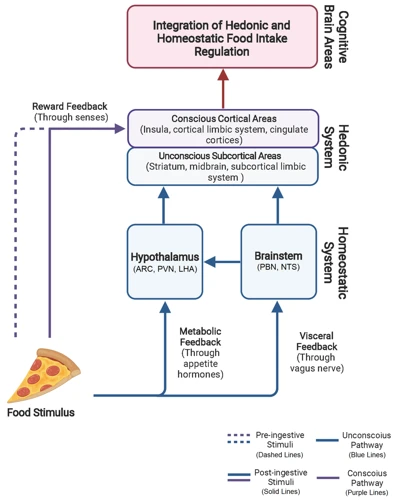
Proper hydration is crucial for overall health, but it can also play a significant role in appetite control and weight management. Research shows that drinking water before meals can aid in weight loss by reducing the number of calories consumed. But why exactly does water matter for appetite control?
When our bodies are dehydrated, they can sometimes signal hunger rather than thirst. This can lead to unnecessary snacking and overeating, as we mistake our body’s need for water as a need for food. By staying properly hydrated, we can avoid these false hunger signals and better understand when our body actually needs food.
Drinking water can also help us feel fuller for longer periods of time. Studies have shown that consuming water before a meal can help reduce overall calorie intake because it creates a feeling of fullness in the stomach. Additionally, choosing water instead of sugary drinks can save hundreds of calories throughout the day and help prevent overconsumption of carbohydrates.
By prioritizing hydration and incorporating water into our daily routine, we can better control our appetite and aid in weight loss efforts. However, many people struggle with determining how much water they should be drinking and finding ways to stay accountable.
How Dehydration Can Cause False Hunger Signals
Many people struggle with differentiating between true hunger and thirst, and it’s not surprising. The body’s signals for hunger and thirst can often feel the same. In fact, sometimes when we feel hungry, we may actually just be dehydrated. This occurs because dehydration can cause false hunger signals to be sent from the body, leading us to believe that we need to eat when we really need more water. The human body is made up of roughly 60% water, and every system and function in our body depends on it. It’s crucial to recognize the impact dehydration can have on our appetite and overall health.
How Water Can Help Fill You Up
Water is not just a refreshing drink, but it can also help you manage your appetite when trying to lose weight. One way that water helps with appetite control is by filling you up. Drinking water before a meal can help reduce the amount of food you eat.
When you drink water, it takes up space in your stomach, which sends signals to your brain that you are full. This can help prevent you from overeating and consuming excess calories.
But, water doesn’t just fill you up physically, it can also satisfy your emotional hunger. Sometimes when we crave food, it’s not because we are physically hungry, but because we are bored, stressed or emotional. Drinking water can help satisfy these cravings and prevent us from turning to food for comfort.
Furthermore, drinking water instead of high-calorie beverages can also help with weight loss. Often people consume a large number of calories through sugary drinks like soda or juice. By swapping out these high-calorie beverages for water, you can reduce your overall calorie consumption, leading to weight loss.
The following table highlights some of the benefits of drinking water for appetite control:
| Benefits of Drinking Water for Appetite Control |
|---|
| Can fill you up, reducing the amount of food you eat |
| Can satisfy emotional hunger cravings |
| Can replace high-calorie beverages, reducing overall calorie intake |
It’s important to drink water throughout the day, not just at meal times, to stay hydrated and manage your appetite. By staying hydrated, you can prevent false hunger signals caused by dehydration and keep your appetite in check.
Setting Personal Water Intake Goals
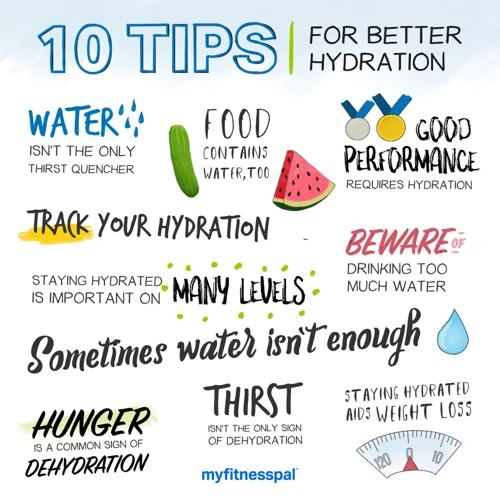
When it comes to setting personal water intake goals, there are a few factors to consider. Firstly, it’s important to calculate your daily water needs based on your body weight, activity level, and climate. This will give you a baseline amount to aim for each day.
Calculating Your Water Needs
To calculate your daily water needs, a general rule of thumb is to aim for half of your body weight in ounces. For example, if you weigh 150 pounds, you would aim to drink at least 75 ounces of water per day. However, if you are very active or live in a hot climate, you may need to increase this amount to compensate for sweat losses.
Finding Your Ideal Water Temperature and Type
In addition to quantity, it’s also important to consider the temperature and type of water you prefer. Some people prefer room temperature water, while others prefer it chilled. Similarly, some people prefer sparkling water or water with added electrolytes. Experiment with different options to find what works best for you and makes it easier to stay hydrated.
Once you have determined your personal water intake goals, consider breaking it down into smaller, more manageable amounts throughout the day. For example, if you aim to drink 75 ounces of water per day, that could be broken down into 5 15-ounce glasses spread throughout the day.
Remember, these are just guidelines and everyone’s needs may vary. Listen to your body and adjust accordingly. Don’t be too hard on yourself if you don’t quite meet your goals every day, but aim to be consistent in your efforts.
One way to stay motivated and on track is to track your water intake using technology. This can help you ensure you are meeting your goals and identify patterns in your hydration habits.
Calculating Your Water Needs
Determining your body’s hydration needs can be a bit perplexing, but it is an essential step in managing your appetite and achieving weight loss goals. While there is no one-size-fits-all approach to calculating your water requirements, there are several factors you can take into consideration to ensure that you’re drinking enough to keep your body functioning optimally. By understanding these variables and customizing your water intake accordingly, you can stay on track with your weight loss journey and reap the many benefits of staying hydrated.
Finding Your Ideal Water Temperature and Type
Determining the right temperature and type of water can play a crucial role in staying hydrated and managing appetite while losing weight. Drinking water at the right temperature and choosing the appropriate type can not only help quench thirst but also improve digestion. Here are some tips on how to find your ideal water temperature and type.
| Water Temperature | When to Drink | Benefits |
|---|---|---|
| Cold water | During or after exercise, on a hot day | Cooling effect, can help regulate body temperature, can increase metabolism |
| Room temperature water | Throughout the day or before meals | Can aid digestion, better absorbed by the body, gentle on the stomach |
| Warm water | Before meals, in the morning | Stimulates digestion, can aid in constipation relief, can help soothe sore throat |
While drinking plain water is beneficial, sometimes adding different elements to it can also make it more beneficial for the body; choosing the right type of water can also make a difference.
Some types of water are readily available in the market such as bottled water, tap water, sparkling water, and more. It’s important to choose the right type of water that suits your lifestyle, taste buds, and budget.
For instance, bottled water may be convenient and easily accessible, but it may also be more expensive compared to tap water. On the other hand, tap water may be cheaper, but it may also contain more impurities.
Choosing the right type of water also involves being mindful of its mineral content. Mineral water, for example, contains added minerals that can provide additional health benefits. However, it’s still best to consult a healthcare provider before consuming mineral water to avoid any potential health risks, particularly for those with underlying health conditions.
Using Technology to Stay Accountable
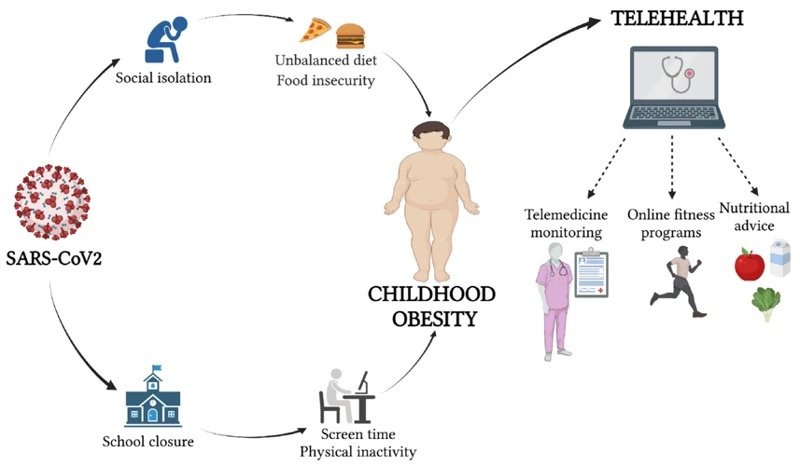
Keeping track of how much water you drink throughout the day might seem like a daunting task, but technology can make it much easier. You can use various tools to help you stay accountable and ensure that you’re drinking enough water to help manage your appetite while losing weight.
Smart Water Bottles and Reminder Apps: One way to track your water intake is through the use of a smart water bottle. These bottles usually come with sensors that track how much water you’re drinking throughout the day. They then send that information to an app on your phone that helps you monitor your progress. Some smart water bottles even have reminders built in that will alert you when it’s time to drink more water based on your personal hydration goals.
Other Water-Tracking Methods: If you’re not interested in investing in a smart water bottle, there are plenty of other methods you can use to track your water intake. Several smartphone apps are available that allow you to log the amount of water you drink manually. You can set daily water intake goals and get reminders throughout the day to keep you on track.
Wearable Technology: Another way to track your water intake is through wearable technology, such as a fitness tracker or smartwatch. Many of these devices have a built-in water tracking feature that allows you to log your water intake throughout the day.
Using technology to stay accountable is a great way to help manage your appetite while losing weight. By tracking your water intake, you’ll be able to make sure you’re drinking enough throughout the day. This will help you avoid dehydration, which can cause false hunger signals and lead to overeating. With the help of technology, you can make sure you’re staying hydrated and on track to achieve your weight loss goals.
Smart Water Bottles and Reminder Apps
If you struggle to remember to hydrate throughout the day, technology can be a real lifesaver. There are a variety of smart water bottles and reminder apps available that can help you stay on track and meet your water intake goals. These handy tools use notifications, reminders and even tracking tools to ensure that you’re getting enough water each day. In this section, we’ll explore some of the top technology-based solutions for tracking water intake and offer some tips on using them effectively.
Other Water-Tracking Methods
There are various methods for tracking water intake, besides just using a smart water bottle or reminder app. Here are some other options:
- Journaling: Simply recording the amount of water you drink each day in a notebook or app can help increase awareness and hold you accountable.
- Measuring: Use a measuring cup or water bottle with volume markings to ensure you are drinking the recommended amount of water.
- Visual reminders: Placing water bottles or glasses in visible locations, such as on your desk or kitchen counter, can serve as a reminder to drink more water.
- Hydration checks: Monitoring your urine color can indicate whether you are staying hydrated or need to drink more water. Clear or light yellow urine is a sign of proper hydration, while dark yellow or amber may mean you need to drink more water.
- Hydration apps: In addition to reminder apps, there are also apps that track water intake and provide personalized recommendations based on activity level, age, and gender.
By incorporating some of these tracking methods, you can gain a better understanding of your daily water intake and make adjustments as necessary to ensure you are staying hydrated and managing your appetite as you work towards weight loss goals.
Other Benefits of Staying Hydrated
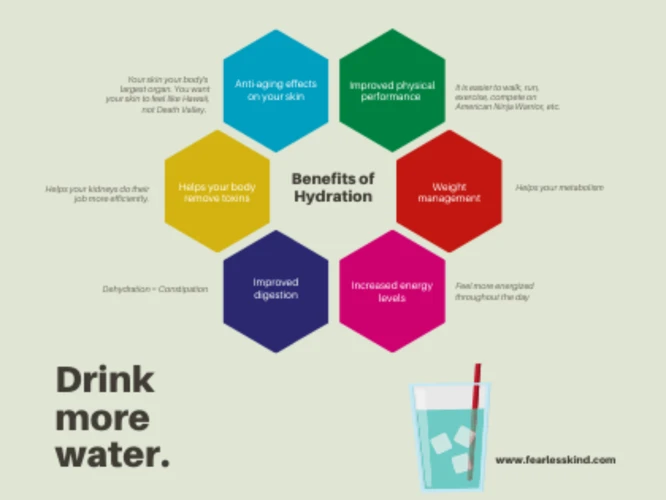
Staying hydrated offers a wealth of benefits beyond appetite control. One of the most significant is improved digestion. When you’re dehydrated, your body produces less saliva, stomach acid, and digestive enzymes that aid in breaking down food. This can lead to abdominal discomfort, bloating, and constipation. Drinking enough water helps ensure that your digestive system runs smoothly and efficiently, promoting more comfortable and regular bowel movements.
Another benefit of drinking water is clearer skin. When you’re properly hydrated, your skin cells are plump and well-hydrated, giving you a healthy, radiant appearance. Additionally, drinking plenty of water can help flush out toxins and reduce inflammation, which can reduce the appearance of blemishes, acne, and other skin issues.
In addition to supporting digestive health and promoting clear skin, staying hydrated can also boost your energy levels. When you’re dehydrated, your blood volume decreases, which can lead to feelings of fatigue and sluggishness. Drinking enough water helps ensure that your blood volume stays at a healthy level, providing your body with the oxygen and nutrients it needs to function optimally.
There are many ways to ensure that you stay properly hydrated throughout the day. In addition to tracking your water intake, consider incorporating natural flavorings, such as lemon or cucumber slices, into your water. You can also try making water more convenient by carrying a refillable water bottle with you or setting reminders on your phone to sip water regularly. Combining water tracking with other appetite control techniques, such as mindful eating and choosing filling, nutrient-dense foods, can help you reach your weight loss goals while reaping the many benefits of staying properly hydrated.
Clearer Skin
Have you ever noticed a direct correlation between your water intake and the appearance of your skin? Keeping your body hydrated can have a positive impact on the overall health and radiance of your skin. When you drink enough water, your skin can better regulate its production of oils, leading to a clearer complexion. Water helps flush toxins out of your body, which can also contribute to a more radiant complexion. So next time you reach for a fancy skincare product, consider reaching for a glass of water instead to give your skin the hydration it needs from the inside out.
Improved Digestion
One of the benefits of staying hydrated is improved digestion. Water helps to soften stool, making it easier to pass through your digestive system. It also helps to move food through your digestive tract, preventing constipation. Additionally, drinking enough water can help prevent indigestion, which can be uncomfortable and sometimes even painful.
Water also plays a role in breaking down food in your stomach. When you drink water while eating, it helps to dilute stomach acid and make it easier for your digestive system to break down food. This can help prevent acid reflux and other digestive discomforts.
Another way that water can improve digestion is by aiding in nutrient absorption. When your body is properly hydrated, it can absorb nutrients from food more easily. This can lead to stronger bones, better immune function, and healthier skin.
In order to reap these digestive benefits, it is important to make sure you are drinking enough water throughout the day. Use the calculating your water needs section to determine how much water you should be drinking daily. Additionally, consider using technology to stay accountable and track your water intake.
| The Benefits of Improved Digestion Include: |
|---|
| Softens stool, making it easier to pass through your digestive system |
| Prevents constipation by helping to move food through your digestive tract |
| Helps prevent indigestion and acid reflux |
| Aids in nutrient absorption, leading to stronger bones, better immune function, and healthier skin |
In addition to drinking enough water, there are other steps you can take to further support your digestive health. This includes eating a balanced diet with plenty of fruits, vegetables, and fiber. You can also consider taking probiotics, which can help promote healthy gut bacteria. Staying hydrated and supporting your digestive health can lead to improved overall wellness.
Increased Energy Levels
Staying hydrated not only helps control appetite but also has several other benefits, including increased energy levels. When our bodies are dehydrated, it can negatively impact our athletic and cognitive performance, resulting in fatigue and sluggishness.
Studies have shown that even mild dehydration can lead to decreased energy levels and decreased cognitive performance. This is because our body needs water to carry out several biological processes, including the transportation of nutrients and oxygen to cells.
To ensure optimal hydration and energy levels, it’s recommended to drink at least eight glasses of water a day. However, individual water needs may vary depending on factors such as activity level, climate, and body weight.
In addition to water, incorporating electrolyte-rich beverages such as coconut water or sports drinks can also help maintain hydration levels and boost energy. It’s important to note that stimulants such as caffeine can have a diuretic effect and may lead to dehydration, so it’s best to limit consumption and balance it with adequate water intake.
Staying hydrated can have a significant impact on energy levels and overall well-being. Incorporating a water-tracking routine can help ensure you are meeting your hydration needs and reaping these benefits.
Tips for Drinking More Water
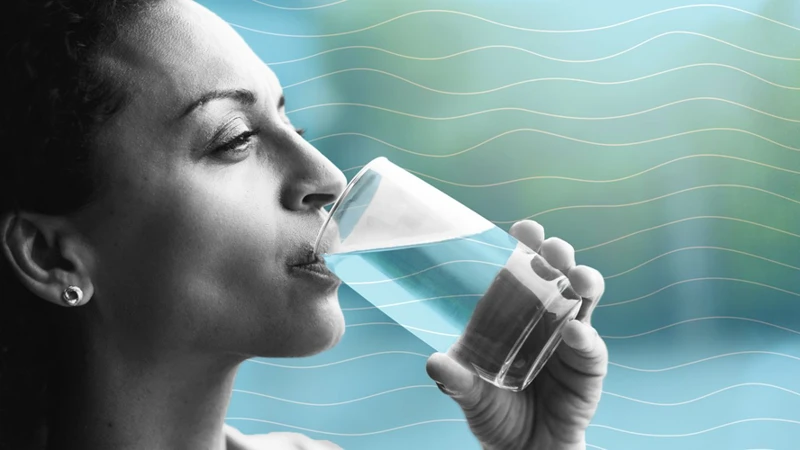
One of the biggest challenges when it comes to tracking water intake is actually drinking enough water. Many people struggle to drink the recommended amount of water each day, which can range from 8-10 cups for some individuals up to 15 cups or more for others, depending on factors such as age, weight, and activity level.
Flavoring Water Naturally: One way to make water more palatable is to add natural flavors. Squeezing a wedge of lemon or lime into your water can add a subtle, refreshing taste. You can also try adding slices of cucumber, mint, or ginger to your water for a little extra flavor.
Making Water More Convenient: Another tip for drinking more water is to make it more convenient. Keep a water bottle with you at all times so you can sip throughout the day, and try to make sure it’s always filled up. You could also try setting reminders on your phone or computer to prompt you to drink water throughout the day.
Using Water to Replace Less Healthy Beverages: You can also try swapping out less healthy beverages, such as soda or juice, for water. This can help you cut back on sugar and empty calories while also increasing your water intake.
Combining Water with Food: Another way to increase your water intake is by choosing foods that are high in water content. Fruits and vegetables like watermelon, strawberries, cucumbers, and celery all contain a high percentage of water and can help keep you hydrated. Soups and broths are also a good source of hydration.
Drinking Water Before Meals: Some people find that drinking a glass of water before meals helps to suppress their appetite and prevent overeating, so this could be a helpful strategy to try.
Remember, when it comes to staying hydrated, every bit counts. Even small changes to your daily routine can add up over time and make a big difference in how much water you’re drinking.
Flavoring Water Naturally
Are you struggling to drink enough water due to its bland taste? Perhaps you’re used to sugary drinks and find plain water hard to swallow. But adding sugary or artificially flavored drinks to your diet can derail your weight loss goals. Don’t despair, however, as there are ways to flavor your water naturally that are both tasty and good for you. Keep reading for some simple yet effective ways to make water more enjoyable to drink.
Making Water More Convenient
One way to drink more water is to make it more convenient for yourself. Here are some strategies you can use to ensure that you always have water within reach:
| Strategy | Description |
| Carry a water bottle with you | Invest in a high-quality water bottle that you can take with you wherever you go. Make sure it’s easy to refill and has a secure lid to prevent spills. |
| Set up hydration stations in your home and office | Place water bottles or pitchers in key locations to remind you to drink more water. Keep them visible and easily accessible. |
| Use a straw | Drinking through a straw can make it easier to consume more water, as it allows you to take bigger sips without feeling overwhelmed. |
| Drink water before and after meals | Make it a habit to drink a glass of water before and after every meal. This not only helps you stay hydrated, but it can also help you feel satiated and prevent overeating. |
| Infuse your water with flavor | If you find plain water boring, try adding some flavor to it with fresh fruit, herbs, or cucumber slices. This can make it more enticing and enjoyable to drink. |
| Set reminders on your phone | Use your smartphone to set reminders throughout the day to drink water. This can help you establish a routine and avoid forgetting to hydrate. |
By implementing one or more of these strategies, you can make it easier and more convenient to stay hydrated throughout the day.
Combining Water Tracking with Other Appetite Control Techniques
When it comes to managing your appetite and losing weight, tracking your water intake is just one tool in your toolbox. In fact, water tracking can be even more effective when combined with other appetite control techniques.
One such technique is mindful eating, which involves paying close attention to the sensations of hunger and fullness while eating. By being more present and aware during meals, you may find that you naturally eat less and feel more satisfied.
Another technique is choosing filling, nutrient-dense foods. These are foods that are low in calories but high in fiber, protein, and other important nutrients. Examples include vegetables, whole grains, and lean proteins. By focusing on these foods, you can help control your appetite and maintain a healthy weight.
Of course, it’s important to remember that water tracking is just one part of the equation. In order to achieve sustainable weight loss, it’s important to adopt a holistic approach that incorporates regular exercise, good sleep habits, and other healthy lifestyle habits.
By combining water tracking with these other techniques, you’ll have a powerful arsenal for managing your appetite and reaching your weight loss goals. So start tracking your water intake today and experiment with different strategies to find what works best for you!
Mindful Eating
When it comes to weight loss, most people focus on what they eat and how much they eat. But have you ever considered how you eat? Mindful eating is a practice that encourages you to pay attention to your food and your body’s hunger and satisfaction signals, rather than eating mindlessly. By being present and fully engaged with your food, you can improve your relationship with eating and reduce overeating. Let’s explore how the practice of mindful eating can complement tracking your water intake for better appetite control during weight loss.
Choosing Filling, Nutrient-Dense Foods
Another effective way to manage appetite while losing weight is to focus on choosing filling and nutrient-dense foods. Filling foods are those that take up a lot of space in your stomach, leaving you feeling satisfied and full. Nutrient-dense foods, on the other hand, are those that provide a high amount of vitamins, minerals, and other important nutrients for your body, helping to keep you healthy and energized.
When it comes to choosing filling foods, look for options that are high in fiber and low in calorie density. Fiber is a type of carbohydrate that your body cannot digest, so it passes through your system relatively intact, helping to fill you up without adding extra calories. Good sources of fiber include fruits, vegetables, whole grains, and legumes.
Choosing foods with a low calorie density means that you can eat a larger volume of food without consuming too many calories. Foods that are high in water content, such as fruits and vegetables, tend to be low in calorie density. Lean proteins, such as chicken or fish, can also be a good choice because they are filling without adding many calories.
When selecting nutrient-dense foods, opt for options that are rich in vitamins, minerals, and other important nutrients for your body. Foods like leafy greens, colorful fruits and vegetables, lean proteins, and whole grains are great choices.
Incorporating filling, nutrient-dense foods into your diet can help you stay full and satisfied while still consuming a balanced and healthy diet.
Conclusion
In conclusion, tracking your water intake can be an effective tool for managing your appetite while losing weight. By staying hydrated, you can avoid false hunger signals caused by dehydration and feel fuller faster. Setting personal water intake goals and using technology to stay accountable can help you reach your daily water intake needs. Staying hydrated also has additional benefits, such as clearer skin, improved digestion, and increased energy levels.
To make drinking more water easier, try flavouring it naturally or making it more convenient with a smart water bottle or reminder app. Combining water tracking with other appetite control techniques, such as mindful eating and choosing filling, nutrient-dense foods, can further support your weight loss goals.
Remember to listen to your body and adjust your water intake as needed. While there is no one-size-fits-all approach to hydration, staying mindful and consistent with your water intake can make a significant impact on your overall health and weight loss journey. Stay hydrated, stay healthy, and stay committed to achieving your goals.
Frequently Asked Questions
Can drinking more water actually help me lose weight?
Yes, drinking water can help manage your appetite and aid in weight loss by filling you up, regulating your hunger signals, and increasing your metabolism.
How much water should I be drinking each day?
The amount of water you should drink each day varies based on factors such as your age, weight, activity level, and weather. It’s generally recommended to drink at least 8 glasses of water a day.
What are the benefits of tracking my water intake?
Tracking your water intake can help hold you accountable for staying hydrated, aid in weight loss, improve your digestion, and increase your energy levels.
What’s the optimal temperature for drinking water?
While some people prefer drinking cold water, others may find room temperature water to be more comfortable to drink. The most important thing is to drink enough water to stay hydrated.
Can I drink other liquids besides water to stay hydrated?
While other liquids such as tea, coffee, and juice can contribute to your daily water intake, it’s important to limit your intake of sugar-sweetened beverages and consume mostly water for optimal hydration.
Is it possible to overhydrate?
Overhydration, or water intoxication, can occur if you drink an excessive amount of water in a short period of time. However, this is rare and can be avoided by drinking water in moderation and allowing your body to regulate its water levels.
Will tracking my water intake really make a difference in my weight loss journey?
Tracking your water intake can make a significant difference in your weight loss journey by helping you manage your appetite, reduce snacking, and hold you accountable for drinking enough water each day.
What are the best ways to flavor my water naturally?
You can flavor your water naturally with sliced fruit, herbs such as mint or basil, or by infusing your water with cucumber or lemon slices. Avoid adding sugar or artificial sweeteners to your water.
Can apps really help me stay accountable for drinking enough water?
Yes, water tracking apps can be a helpful tool in staying accountable for drinking enough water throughout the day. They can send reminders and track your progress over time.
How do I know if I’m drinking enough water?
You can tell if you’re drinking enough water by monitoring your urine color. If it’s light yellow or clear, you’re likely hydrated. If it’s darker, you may need to increase your water intake.







